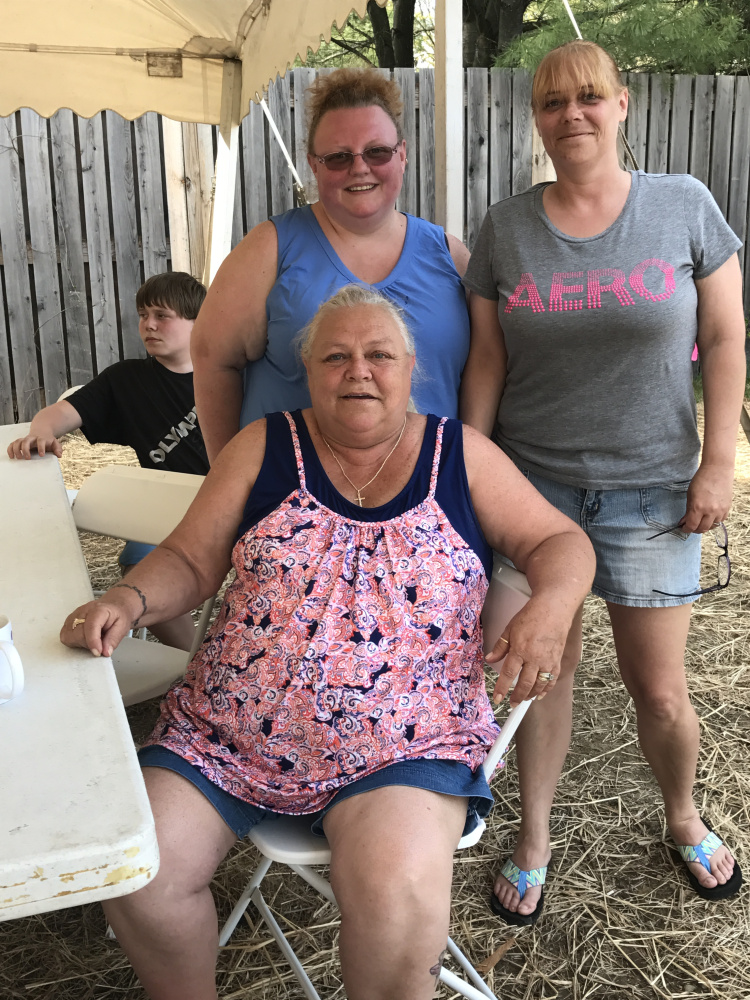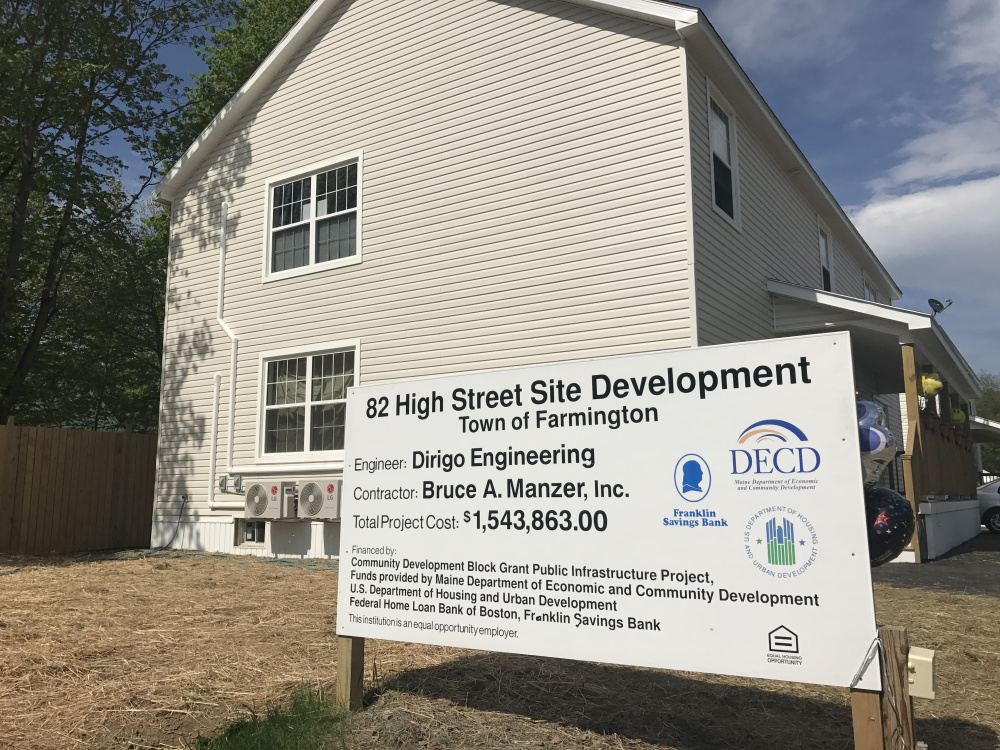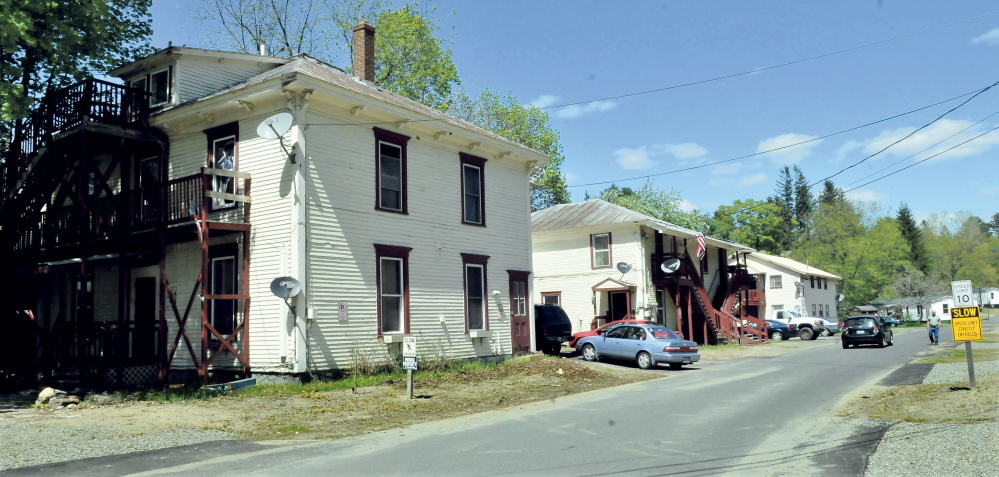FARMINGTON — When Cindy Silva found the 82 High Street development in 1989, she was not in a good way. She was newly divorced with two small daughters in tow and struggling to make ends meet. She had, by her own account, nowhere left to go.
So she moved into one of the development’s affordable housing apartments, eventually upgrading to a mobile home. Then she met the man who would become her husband and took on his four children as her own.
In 1993, through a rent-to-own program run by the park’s developers, the couple purchased their mobile home. Twenty-eight years later, Silva and her husband David still live in that home, and she is regarded by many here as a community leader with an open door policy and a sympathetic ear. Known as the mayor of 82 High Street, Silva lives surrounded by family — all but one of her children and stepchildren still live in the park, having raised their own children here.
“You know that song this is ‘The House that Built Me,'” Kristi Luce, one of Silva’s daughters, said in a recent interview. “This is the trailer park that built me.”
On Thursday tenants, board members and developers of 82 High Street, a 30-year-old affordable housing development on Farmington’s Sawtelle Lane, marked the official opening of three newly constructed apartment buildings with an open house complete with snacks, speakers, guests and tours of the new buildings.
Those buildings began as just a thought, said property manager Rachel Jackson Hodsdon, and came together through hard work, luck and the generosity of the community from local financiers such as the Franklin Savings Bank to the town of Farmington, which applied for $860,000 in Community Development Block Grants on the development’s behalf. Board members, neighbors and tenants volunteered hours of their time, and the developers sought input on the design of the new structures from every stakeholder.
“It was a lot of work, and it takes some time, but what you end up with is these absolutely gorgeous apartments,” Jackson Hodsdon said.
Planning for the development began four years ago and construction of the buildings was completed in April. At one point last year, the project appeared in jeopardy, as the company the group intended to purchase its modular buildings from, Oxford-based Keiser Homes, abruptly went out of business. At the time 82 High Street board members feared they would lose the $60,000 deposit they had paid Keiser.
But Jackson Hodsdon said the contracting company they were working with, Wilton-based Cousineau Inc., honored the deposit anyway in just one of many acts of generosity that helped make the new buildings a reality. With Cousineau’s help, the developers found Kent Homes in Canada and construction continued more or less on schedule.
The buildings include four two-bedroom apartments, seven one-bedroom units and a one-bedroom handicapped accessible apartment. In an interview last month, Barbara Crockett, who lives in the first floor handicap unit, described her move to the new building as life-changing.
“It boosts your self-esteem. It really does,” Crockett said. “I love this place. I wouldn’t change it for nothing.”
The development also includes a series of mobile homes. Some are rentals; others, like Silva’s, are owned. As one of the first orders of business in the four-year effort to upgrade 82 High Street’s housing, tenants banded together and renovated the mobile homes, redoing each other’s floors and interiors.
That kind of community effort is typical in 82 High Street’s history. Even before the 82 High Street group came in, the previous owner rented out apartments a week at a time for those in dire need of housing. When those tenants couldn’t afford to pay up front, he loaned them money to be paid back later. It wasn’t the safest place to stay at the time, those familiar with the place said, but it was a roof over your head.
When that owner wanted to sell the 3-acre lot, Farmington townspeople initially moved to convert the land to a park. Then community members, starting with the property’s existing residents, branching out to ecumenical and town leaders and then ballooning to more than 30 partners, volunteered at least 20,000 hours to transform existing structures, including a 19th century farmhouse, into affordable housing units for Farmington’s most vulnerable residents.
Today the development sets aside 17 units for individuals or families making 50 percent or less of the area median income. There is a growing waitlist, currently 15 people long, and Jackson Hodsdon said they try their best to balance support for existing tenants working to stabilize themselves and bringing in new people.
On this blazingly hot day, tenants milled around making small talk. Children played on a communal swingset while guests snacked on vegetable trays. The place has become a close-knit neighborhood, Silva said, where neighbors knock on each other’s doors for spare sugar or eggs and joke about who would play community store this week.
“Everybody knows everybody and everybody gets along,” Silva said. “Most of the time.”
Kate McCormick — 861-9218
kmccormick@centralmaine.com
Twitter: @KateRMcCormick
Send questions/comments to the editors.







